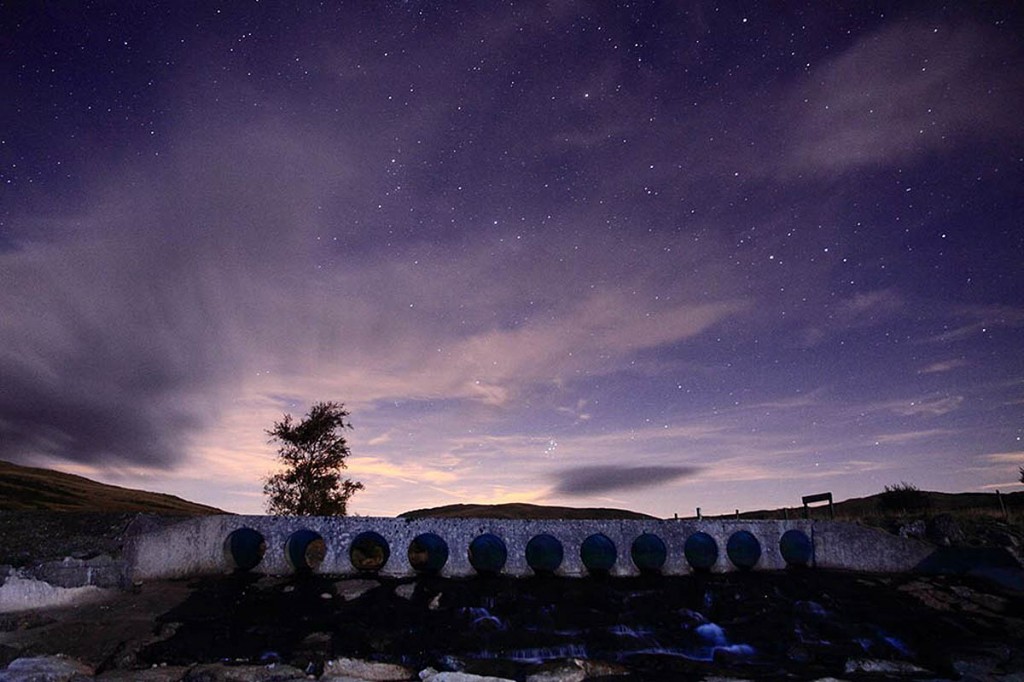Visitors to a national park will find themselves in the dark after it gained a rare international accolade.
Snowdonia has received official international dark sky reserve status, only the 10th in the world to have the designation.
It is the second Welsh national park to be recognised by the International Dark Sky Institute, joining the Brecon Beacons. Exmoor is the only other UK area to be officially recognised as an international dark sky reserve.
The designation is given by the institute to select destinations that have proven that the quality of their night air is outstanding and efforts are being made to reduce light pollution. Currently, international dark sky reserves can be found in nine other locations throughout the world. Wales is the country with the highest percentage of its dark sky designated as an international dark sky.
Emyr Williams, chief executive of Snowdonia National Park Authority, said: “Receiving this designation is very good news for the residents, businesses, visitors and the wildlife of Snowdonia.
“Unfortunately, the opportunity to enjoy the night sky and its stars is in decline, the living patterns of nocturnal creatures are dwindling and as light pollution is rising, it contributes to these deteriorations.
“However, with this designation, the area’s wildlife will be improved, the quality of the environment will be protected, there will be a new natural attraction to attract new visitors to Snowdonia on quiet periods of the year, the local economy will be improved and the dark sky above Snowdonia will be protected for future generations.”
Announcing the news from its headquarters in Tucson, Arizona, on behalf of the dark sky institute directors, John Barentine said: “I sincerely congratulate Snowdonia national park on becoming an international dark sky reserve, the 10th throughout the world.
“Wales now leads the world in the percentage of its territory enjoying protected status for its night skies: as of today, these protections now encompass nearly 18 per cent of the Wales’s land area. Nowhere else has achieved comparable success in recognizing the value of night time darkness and taking concrete steps to safeguard it for future generations.”
One of the officers who was involved in the bid for the status, Rhys Owen, head of the authority’s agriculture, conservation and woodlands service, said: “The response we’ve received from the communities of Snowdonia has been extremely positive, and the support from Brecon Beacons national park and the International Institute for Dark Skies has been very encouraging.
“In winning this status, we also hope to not only protect the environment and enhance the biodiversity and dark skies of the area, but we will go a step further than other designations in the world by raising awareness of the features that link the stars of our culture, from the Mabinogi to the old penillion.”
A stargazing event for beginners took place at Llyn Geirionnydd and on Tuesday evening, 14 December, an introduction to astrophotography will be held in Croesor on a night when the meteor shower from the Gemini constellation is expected to be seen.
A poster-designing competition for pupils within the catchment of Snowdonia promoting the virtues of dark skies has also been arranged.
Other international dark sky reserves are Aoraki Mackenzie in New Zealand, Kerry in Ireland, Mont-Mégantic in Canada, NamibRand nature reserve in Namibia, Pic du Midi in France and Rhön and Westhavelland in Germany.

Jim
06 December 2015No mention of the Northumberland International Dark Sky Park which has gold status from the IDS.